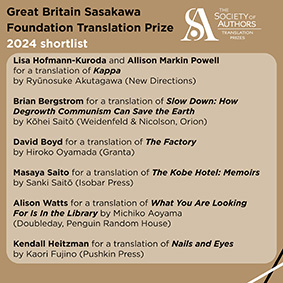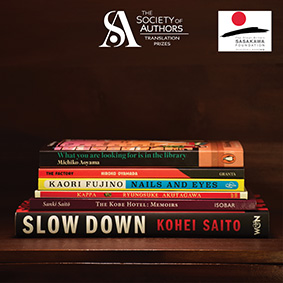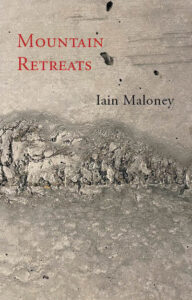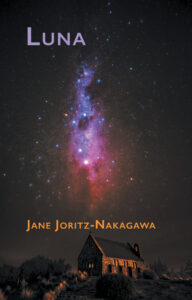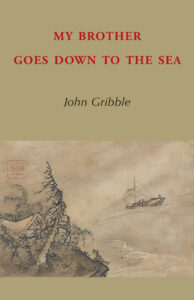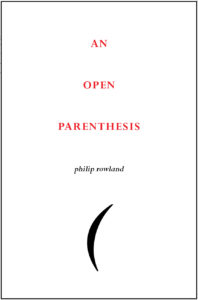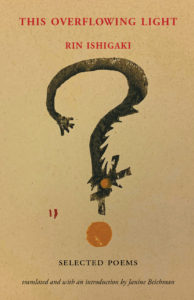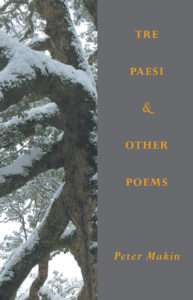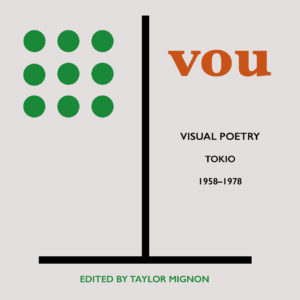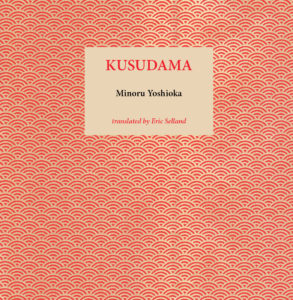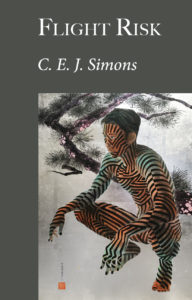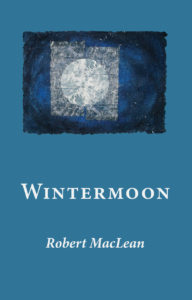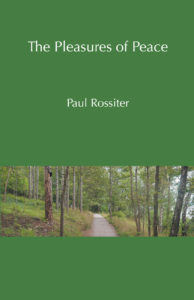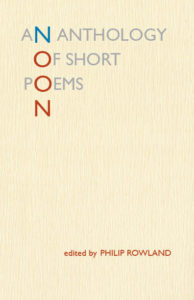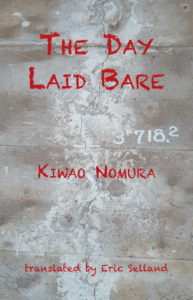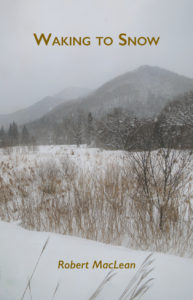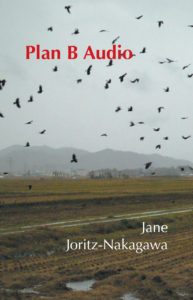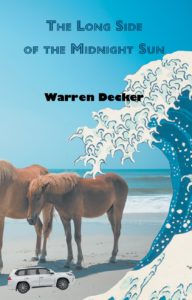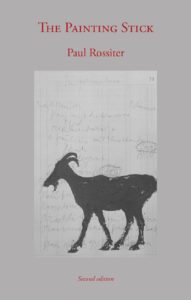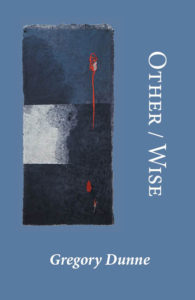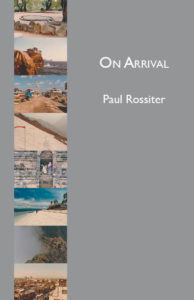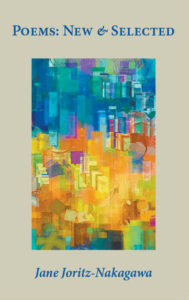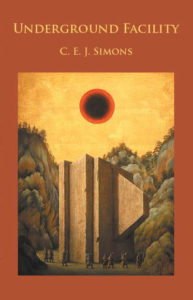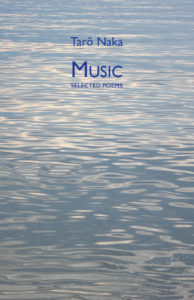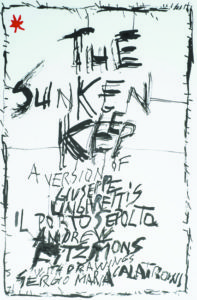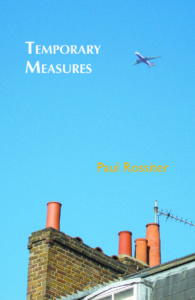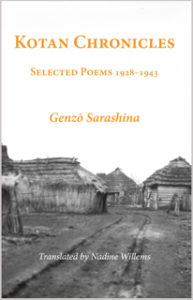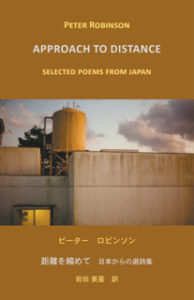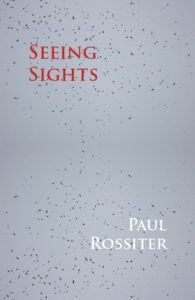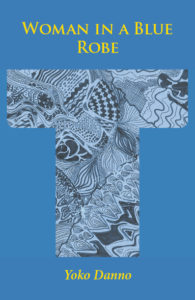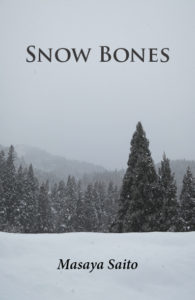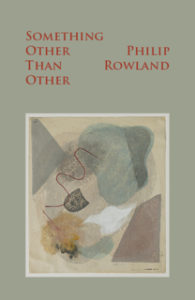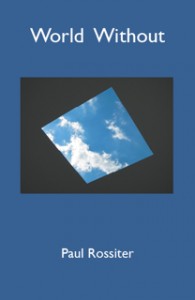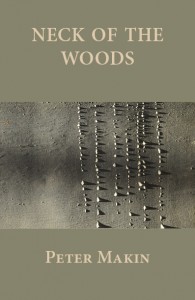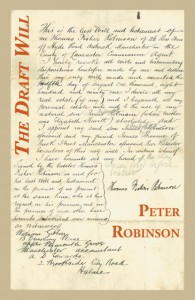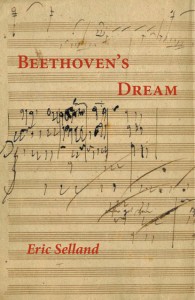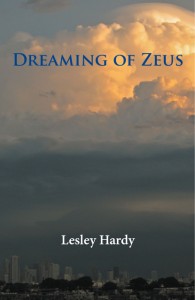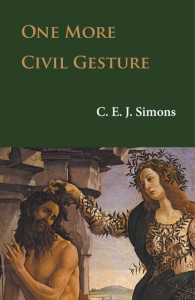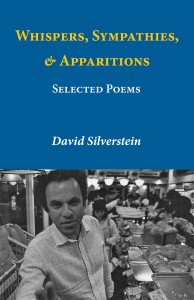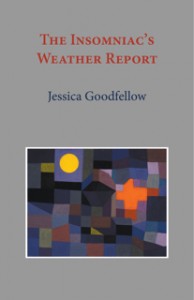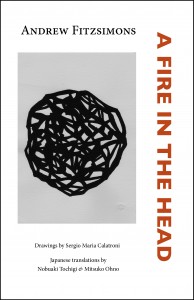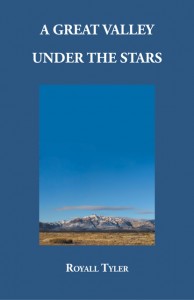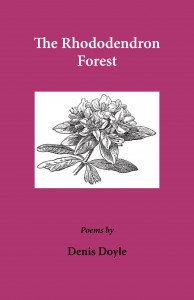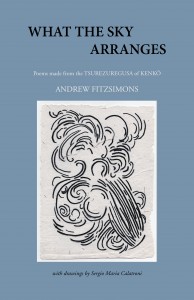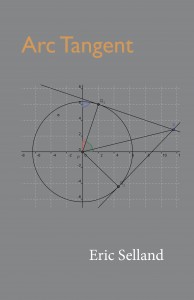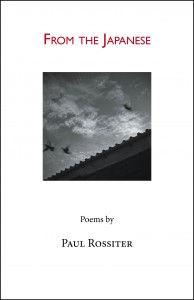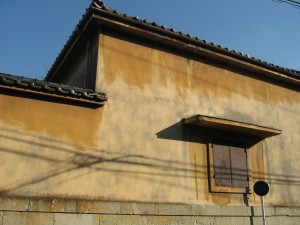 Isobar Press publishes poetry in English by Japanese and non-Japanese authors who live (or have lived) in Japan, or who write on Japan-related themes. Isobar also publishes English translations of modernist and contemporary Japanese poetry, and (occasionally) English translations of poetry in languages other than Japanese but which has a strong Japanese connection.
Isobar Press publishes poetry in English by Japanese and non-Japanese authors who live (or have lived) in Japan, or who write on Japan-related themes. Isobar also publishes English translations of modernist and contemporary Japanese poetry, and (occasionally) English translations of poetry in languages other than Japanese but which has a strong Japanese connection.
In London, Isobar books are available from the London Review Bookshop, 14 Bury Place, London WC1A 2JL, tel: 020 7267 9030.
In Tokyo, Isobar books are available from Books Kinokuniya Tokyo in Shinjuku (near Shinjuku station New South exit).
JUST PUBLISHED
Paul Rossiter: Passages: Poems 1969–2019
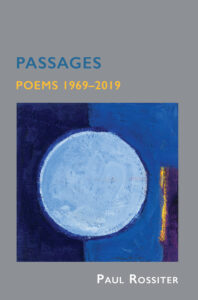 Passages : Poems 1969 – 2019 gathers in one volume much of Paul Rossiter’s poetry, written over the course of fifty years in many countries in Europe, the Middle East, and Asia. It includes most of the poems from the five retrospective collections and two gatherings of new work published by Isobar Press between 2013 and 2021, together with some poems that only ever appeared in In Daylight and Monumenta Nipponica, both published in 1995. A few entirely new pieces have been added.
Passages : Poems 1969 – 2019 gathers in one volume much of Paul Rossiter’s poetry, written over the course of fifty years in many countries in Europe, the Middle East, and Asia. It includes most of the poems from the five retrospective collections and two gatherings of new work published by Isobar Press between 2013 and 2021, together with some poems that only ever appeared in In Daylight and Monumenta Nipponica, both published in 1995. A few entirely new pieces have been added.
A quiet voice, all the louder for its quietude, Paul Rossiter’s is one of the most subtle, the most centred and most needed for turbulent times. – Marius Kociejowski
Paul Rossiter is a musician and a dancer. His footprint is human but a light one. He touches down in various places across a hemisphere, picks up on the sights and sounds, and plays them straight. His is a voice you want to keep listening to. – Laurie Duggan
The poems [in From the Japanese] are so tangible, clear and precise and I love the naturalness – like human speech – of the writing. And how real their concerns are. A lovely thing to have created such a book for others to walk into. – Lee Harwood
December 2024. 508 pages. 229 x 152 mm. ISBN 978-4-907359-49-2 (paperback).
A review by Ian Brinton, Litter: Paul Rossiter’s monumental fifty-year collection of poems provides us with a memento written by ‘A passing traveller’ and they offer us, time and again, an echo of Pound’s Section:Rock-Drill cantos in which ‘autumn leaves blow from my hand’ and the light appears ‘almost solid’.… [The] sense of the manifest appears clearly on each page of Paul Rossiter’s Poems 1969-2019. Click here to read the whole review.
A review by BIlly Mills, Elliptical Movements: The observed world speaks for itself, on its own terms. In a poem near the middle of the book, ‘Beach’, he writes ‘’there’s no such thing as chaos’ and time and again the poems reveal the order in an apparently random world through a process of quiet transcription, an apparent minimal intervention into the flow of language that conceals a careful artistry. Click here to read the whole review.
Billy Mills also says (for which I think him!): Regular readers of these reviews will be aware that I sometimes reflect on the history of non-mainstream verse. Reading Rossiter’s work, I’m struck by the fact that I’ve never heard his name mentioned in discussions of alternative British poetries of the last half century or so, never encountered him in any of the anthologies of this ‘other’ stream. Perhaps it’s because he started publishing late and has lived outside the UK for so long; I don’t know. Even the margins have margins, it seems. It would be interesting to see his work presented in a context that included poets like Frances Horovitz, Richard Caddel, Harry Gilonis, Colin Simms and others. Without going full on ‘Tradition and the Individual Talent’, I believe that consideration of Rossiter in that kind of context would both bring his work into focus and offer new ways to read the children and grandchildren of Albion.
Click here to buy from Amazon in the US; click here to buy from Amazon in the UK; click here to buy from Amazon in Japan.
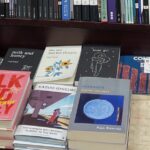 If you’re in Tokyo, the book is available at Books Kinokuniya Tokyo (near the New South exit from Shinjuku station), and if you’re in London, it’s available from the London Review Bookshop in Bury Place WC1.
If you’re in Tokyo, the book is available at Books Kinokuniya Tokyo (near the New South exit from Shinjuku station), and if you’re in London, it’s available from the London Review Bookshop in Bury Place WC1.
COMING SOON
Lindley Williams Hubbell: Selected Poems
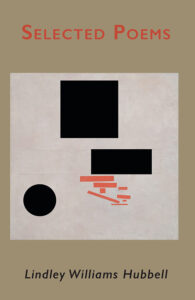 Lindley Williams Hubbell (1901–1994) is one of the forgotten figures of twentieth-century American poetry. After receiving a Yale Younger Poets Award in 1927, his work was published by several major U.S. publishers, but then in 1953 he moved to Japan and liked it so much that he never left again, becoming a Japanese citizen in 1960 and from then on publishing almost exclusively in Japan. He taught at Doshisha University in Kyoto and became an afficionado of nō theatre and a great fan of Japanese pop music.
Lindley Williams Hubbell (1901–1994) is one of the forgotten figures of twentieth-century American poetry. After receiving a Yale Younger Poets Award in 1927, his work was published by several major U.S. publishers, but then in 1953 he moved to Japan and liked it so much that he never left again, becoming a Japanese citizen in 1960 and from then on publishing almost exclusively in Japan. He taught at Doshisha University in Kyoto and became an afficionado of nō theatre and a great fan of Japanese pop music.
In his sixty-year writing career he moved through several phases : in New York in the 1920s, he wrote short, finely cadenced lyrics ; by the 1940s he was producing substantial modernist works of great technical bravura ; after his arrival in Japan, he moved to a more anecdotal, often humorous mode. Yet, in spite of this stylistic odyssey, the voice in the poems is always recognisably his own. This Selected Poems reintroduces the work of an important and enjoyable poet, one who wrote equally well about urban life on Long Island and about the Japan he knew intimately during his forty-year residence there.
Hiroaki Sato: This generous selection from Lindley Williams Hubbell’s poetic œuvre illustrates his change – from youthful lyrics speaking of love and death, to the history of man and land over millions of years, to the wonderment at small things in daily life, to something akin to Prospero’s farewell to magic. All the while he never let go of poetry as a form of art, applying couplets, quatrains, sonnets, sestinas, double sestinas, wherever they fit, as he revealed his casual erudition in angelology, archeology, craniology, geography, oceanography and, most profoundly, art, whether verbal or visual.
Lindley Hubbell, my teacher of poetry sixty years ago, in Kyoto, richly deserves the tribute of this Selected Poems three decades after his death, with the poet Paul Rossiter’s scholarly, full-length introduction.
May 2025. 264 pages. 9 x 6 in/229 x 152 mm. ISBN 978-4-907359-50-8 (paperback).
Lindley Williams Hubbell: Long Island Triptych
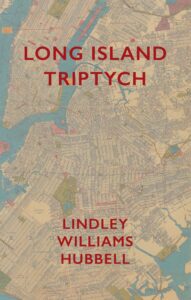 Lindley Williams Hubbell (1901–1994) received a Yale Younger Poets Award in 1927, and his work afterwards appeared from several major U.S. publishers. Then in 1953 he moved to Japan and liked it so much that he never again left the country, taking Japanese citizenship in 1960. Thereafter he published almost exclusively in Japan, and his work became lost to view in his own country.
Lindley Williams Hubbell (1901–1994) received a Yale Younger Poets Award in 1927, and his work afterwards appeared from several major U.S. publishers. Then in 1953 he moved to Japan and liked it so much that he never again left the country, taking Japanese citizenship in 1960. Thereafter he published almost exclusively in Japan, and his work became lost to view in his own country.
His most significant book, the last to appear in the U.S. before his departure, was Long Island Triptych and Other Poems (1947). In this book – and especially in its title poem separately reissued here – he broke through from his early style of short, finely cadenced lyrical poems to an ambitious and original modernism. In an afterword, editor Paul Rossiter argues that this modernism was inspired by the work of his friend Gertrude Stein, and especially by her writings on Cézanne, Picasso and the cubists.
The three panels of the Long Island Triptych focus on three Long Island neighborhoods – Greenpoint, Ridgewood, and Glendale – and each includes a great variety of material contained within a formal structure as rigorous as that of an analytic cubist work by Braque or Picasso. In a late essay comparing Gertrude Stein’s work with that of the cubists, Hubbell states: ‘as the Cubist painter took an object apart and then reassembled the parts according to a completely autonomous sense of design, so she disintegrated her ideational content and reorganized it into a purely formal design’. This taking apart and reassembling of multiple viewpoints is what Hubbell does with his three neighborhoods. The result is a festival of particulars held in a multi-faceted unity by the overarching poetic form.
May 2025. 96 pages. 8.5 x 5.5in/216 x 140 mm. ISBN 978-4-907359-51-5 (paperback).
RECENTLY PUBLISHED
Sanki Saitō: The Kobe Hotel: Memoirs
WINNER OF THE GREAT BRITAIN SASAKAWA FOUNDATION TRANSLATION PRIZE
Translated and with an introduction and notes by Masaya Saito
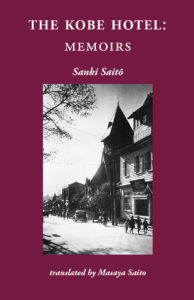 A companion to Selected Haiku 1933–1962, The Kobe Hotel: Memoirs, which tells the story of Sanki’s years of poetic silence during World War II, is a revised edition, with an informative new introduction, of Masaya Saito’s translations of Sanki Saitō’s Kobe and Kobe Sequel, originally published by Weatherhill in 1993. Written by the leading figure of the New Rising Haiku movement, these prose pieces were serialized in haiku journals in the 1950s as a record of Sanki’s experience of wartime and its aftermath.
A companion to Selected Haiku 1933–1962, The Kobe Hotel: Memoirs, which tells the story of Sanki’s years of poetic silence during World War II, is a revised edition, with an informative new introduction, of Masaya Saito’s translations of Sanki Saitō’s Kobe and Kobe Sequel, originally published by Weatherhill in 1993. Written by the leading figure of the New Rising Haiku movement, these prose pieces were serialized in haiku journals in the 1950s as a record of Sanki’s experience of wartime and its aftermath.
In 1942, having been silenced by the Tokkō ( the ‘Special Higher Police’ ), Sanki left Tokyo for Kobe, where he remained for the rest of the war. From his arrival in the city until its almost complete destruction in the fire bombing of 1945, he lived in a run-down hotel along with a diverse community of cosmopolitan lodgers – White Russian, Egyptian, Tartar, Korean, Taiwanese – all of them eking out a hand-to-mouth wartime existence, as were the dozen or so Japanese bar hostesses also living in the hotel. Sanki observed all these people with an alert and sympathetic eye. As he wrote in Kobe Sequel, ‘Like them, I too believed that freedom, and nothing else, was the highest reason for living.’
These memoirs, full of vigor, tragedy, sympathy and humor, are a tribute to ordinary people living freely despite Japan at that time being a police state engaged in total war. As the famous novelist and essayist Itsuki Hiroyuki wrote in his blurb for the initial publication of these memoirs in book form in 1975 : ‘I have no doubt that this is a masterpiece which will remain in the history of Shōwa-era literature.’
September 2023. 152 pages. 8.5 x 5.5in/216 x 140 mm. ISBN 978-4-907359-45-4 (paperback).
Click here to buy from Amazon in the US; click here to buy from Amazon in Japan; Click here to buy from Amazon in the UK.
MASAYA SAITO WINS THE SASAKAWA TRANSLATION PRIZE!
The runner-up was David Boyd for a translation of The Factory by Hiroko Oyamada (Granta Publications).
Sanki Saitō: Selected Haiku 1933–1962
Translated and with an introduction and notes by Masaya Saito
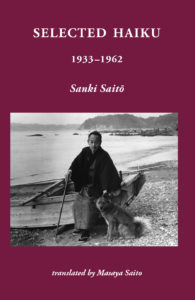 Sanki Saitō is a towering figure in twentieth-century haiku. Although he did not begin to write haiku until the age of 33, he then rapidly became a leading figure in the poetically radical New Rising Haiku movement. He was silenced in 1940 when his writing caused him to be arrested on the charge of violating the Peace Preservation Law, but he began to write again after 1945, and between 1948 and 1962 he published three major collections of haiku: A Peach at Night (1948), Today (1952) and Metamorphoses (1962). Vigorous, earthy, observant, tragic, hilarious, sensuous, unillusioned, powerful, ironic – these haiku are among the major achievements in postwar Japanese poetry.
Sanki Saitō is a towering figure in twentieth-century haiku. Although he did not begin to write haiku until the age of 33, he then rapidly became a leading figure in the poetically radical New Rising Haiku movement. He was silenced in 1940 when his writing caused him to be arrested on the charge of violating the Peace Preservation Law, but he began to write again after 1945, and between 1948 and 1962 he published three major collections of haiku: A Peach at Night (1948), Today (1952) and Metamorphoses (1962). Vigorous, earthy, observant, tragic, hilarious, sensuous, unillusioned, powerful, ironic – these haiku are among the major achievements in postwar Japanese poetry.
In Selected Haiku 1933–1962, Masaya Saito has vividly and powerfully translated 1,141 of Sanki’s haiku. In addition he has written a full and informative introduction, outlining Sanki’s life, describing his key role in the New Rising Haiku movement of the 1930s, elucidating the political and historical context in which he wrote, and discussing his mature postwar work.
Haiku, this oddball. Short and small, unfree, difficult, and its attractiveness supreme,’ began Sanki Saito’s account of his involvement with the world’s shortest verse form. Here Masaya Saito (no relation) has translated a selection of well over a thousand haiku of Sanki, illuminating the kaleidoscopic aspects of Sanki’s art. – Hiroaki Sato
An important poet deserving of this new exhaustive translation, made eminently more accessible by Masaya Saito’s painstaking biography. Often his own worst enemy, Sanki’s haiku plumb the depths of a turbulent, iconoclastic life during Japan’s embrace of modernity and war. – Paul Miller, editor, Modern Haiku
At a time when English-language haiku is exploring new directions in form and content, these fresh translations of Sanki’s haiku remind us that the seasons and their manifestations are, as he puts it, ‘nothing but the outermost layer of the truth of actual existence,’ and that it is the purpose of all haiku ‘to immerse ourselves deep in the truth of actual being.’ – Lee Gurga, editor, Modern Haiku Press
May 2023. 296 pages. 9 x 6 in/229 x 152 mm. ISBN 978-4-907359-43-0 (paperback).
Click here to download a PDF of some pages from this book – haiku from the immediate postwar period, 1945 and 1946.
Click here to buy from Amazon in the US; click here to buy from Amazon in Japan; Click here to buy from Amazon in the UK.
‘There are many ways to approach this rich collection of Sanki’s work, perhaps the largest number of haiku by any modern Japanese haiku poet yet translated. It is a fine achievement, and clearly it has been Masaya Saito’s avocation to undertake it.…It is a magnificent collection.’– David Burleigh in Modern Haiku.
Simon Collings has published a review of Sanki in Litter, in which he says that ‘Sanki’s haiku, full of acute observation, emotional directness and humour, speak for themselves and are the best recommendation for why he deserves our attention.’ Click here to read the whole review.
Eric Selland: Brushwork
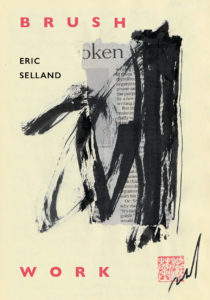 Brushwork consists of a selection of pages from Eric Selland’s recent notebooks, featuring abstract works done with calligraphic brush. Many of these pieces can stand as individual works, but they are actually part of a whole, often framing, or framed by, text written with black-ink pen, so that the notebook itself functions as a work in its own right.
Brushwork consists of a selection of pages from Eric Selland’s recent notebooks, featuring abstract works done with calligraphic brush. Many of these pieces can stand as individual works, but they are actually part of a whole, often framing, or framed by, text written with black-ink pen, so that the notebook itself functions as a work in its own right.
Eric Selland writes: “In recent years the notebook has become the primary focus of my writing. Part of this comes from a questioning of the concept of the completed work, the ‘product,’ as being more important than the process – as if writing were merely an inconvenience to be borne as a means of reaching the goal of a finished work, which is then packaged and sold. I share this concern with a number of poets who approach writing as a daily practice. Here there is less emphasis on the final product and more on process. At the same time, however, I realize that I’m moving in two different directions at once : the conceptual or ideal relationship to language and thought in the form of daily writing, and the understanding of language in its materiality, where the written word becomes an object or shape in a visual work.” (From the introduction)
September 2023. 88 pages. 210 x 148 mm. ISBN 978-4-907359-44-7 (paperback).
Click here to see a PDF excerpt from this book.
Click here to buy from Amazon in the US; click here to buy from Amazon in Japan; Click here to buy from Amazon in the UK.
LATEST REVIEWS
Peter Tasker has posted a marvellous review of Sanki’s memoir of his war-time life in Kobe, The Kobe Hotel: Memoirs (translated by Masaya Saito). ‘The experiences that Sanki relates are variously hilarious, absurd, poignant and horrific. The range of themes evokes Joseph Heller’s great novel Catch 22. The collection certainly gives a startlingly different perspective from the home front during the war. Forget about the Japanese propaganda slogans of “100 million with one spirit” and the like. Sanki introduces a cast of mostly penniless characters, himself included, who “believed that freedom, and nothing else, was the highest reason for living.”’ Click here to read the whole review.
Billy Mills has posted wonderful reviews of the three most recent Isobar books – John Gribble’s My Brother Goes Down to the Sea (‘There’s a quiet mastery … that stems from Gribble’s control of form’), Iain Maloney’s Mountain Retreats (‘[The] final lines from the sequence form a resolution that has been implicit all through … the ending is arrived at, not imposed’), and Jane Joritz-Nakagawa’s Luna (‘[The] ability to make the extraordinary ordinary is at the heart of this book’s achievement’) – along with reviews of interesting pamphlets by Dag T. Straumsvåg (who I hadn’t previously heard of) and John Levy (who I definitely had heard of). Thank you so much for these, Billy! Click here to read the whole review; you’ll need to scroll down a bit for the Isobar volumes.
INFORMATION ABOUT ORDERING ISOBAR BOOKS
Click here for information about ordering Isobar books from Kinokuniya, for delivery to Ireland, and from Amazon.
NOTABLE REVIEWS
CLICK here to read REVIEWS of seven recent Isobar books: This Overflowing Light, Tre Paesi and Other Poems, An Open Parenthesis, Waking to Snow, VOU: Visual Poetry, Tokio 1958–1978, Wintermoon and Kusudama. REVIEWS BY Alan Botsford, Ian Brinton, Simon Collings, Gregory Dunne, Jennifer Harrison, Karl Jirgens, Judy Kendall, Louise George Kittaka, Kris Kosaka, Paul Miller, Billy Mills, Alice Wanderer, and Nadine Willems.
Ian Brinton on Isobar Press in The London Magazine
 Ian Brinton‘s article about Isobar Press has come out on The London Magazine website. He summarises the history of the press, and writes very generously about Isobar books by Paul Rossiter (From the Japanese), Andrew Fitzsimons (What the Sky Arranges), Peter Makin (Neck of the Woods), Saito Masaya (Snow Bones), Naka Tarō (Music: Selected Poems, translated by Andy Houwen and Chikako Nihei), and with mentions of Woman in a Blue Robe by Yoko Danno and The Day Laid Bare by Kiwao Nomura translated by Eric Selland. Click here to read the whole article.
Ian Brinton‘s article about Isobar Press has come out on The London Magazine website. He summarises the history of the press, and writes very generously about Isobar books by Paul Rossiter (From the Japanese), Andrew Fitzsimons (What the Sky Arranges), Peter Makin (Neck of the Woods), Saito Masaya (Snow Bones), Naka Tarō (Music: Selected Poems, translated by Andy Houwen and Chikako Nihei), and with mentions of Woman in a Blue Robe by Yoko Danno and The Day Laid Bare by Kiwao Nomura translated by Eric Selland. Click here to read the whole article.
PREVIOUSLY PUBLISHED
Click on a cover to get more information about the book.
